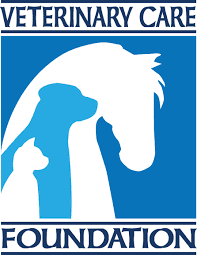
The goal of IndyVet Oncology is to help families with pets in Indianapolis and surrounding areas navigate a diagnosis of cancer and to recommend treatments that provide an excellent quality of life.
Patient Centered Care: Your pet’s quality of life is the most important factor in choosing the best course of treatment. The IndyVet oncology staff helps guide families through each step of the journey, from diagnosis through treatment. Therapeutic options and expected responses are considered in the formulation of the best individualized treatment plan.
Patients comfort and maintaining a normal lifestyle during treatment are priorities for the IndyVet Oncology Department. Our team provides innovative and compassionate care to pets with cancer and provides options for hospice and end-of-life care, when needed.
The purpose of IndyVet’s patient-centered care is to improve the quality of life of each patient, preserving the special bond between pets and their owners. This objective is best accomplished through a close partnership between IndyVet’s oncology team, the referring veterinarian, and the pet’s family. This close collaboration enables the best outcome and maintains continuity of care.
Success in veterinary oncology is measured by improvement in quality of life. While few cancers are completely cured, many pets can enjoy months to years with a good quality of life. Survival times of one year for a dog or cat would be similar to 5 to 7 years for a person so we do not want pets to experience the same side effects with cancer treatment. Overall, pets tolerate cancer treatment extremely well compared to people.
Cancer is a complex disease that alters the body’s normal machinery. Various treatments are used alone, or in combination, depending on the situation being addressed. Multimodality therapy is an approach to cancer treatment that involves a combination of different types of therapy used together. Each patient’s treatment plan is customized and we work with you to determine the right therapy for your pet. At IndyVet, we utilize many different methods to diagnose and treat cancer in pets. Some of the methods used include:
Chemotherapy is drug therapy designed to kill or slow the growth of cancer cells. Many of the drugs used to treat cancer in pets are derived from natural substances found in plants, trees, or bacteria and are often the same drugs used in people. Chemotherapy is frequently used to treat cancer that has spread to other parts of the body, to treat cancer that cannot be treated with surgery or radiation therapy alone, or when it may enhance the effectiveness of other treatments.
The word chemotherapy often brings to mind images of patients sick in the hospital from side effects. For veterinary oncology, the goal of chemotherapy is very different in that it is designed to control or eliminate the cancer while still providing a high quality of life for your pet. Chemotherapy drugs are not ordinarily used to cure cancer, but rather to control it and to slow down the progression of the disease. Many chemotherapy protocols involve a series of treatments, followed by a period of careful monitoring.
A bio-hazard containment hood and personal protective apparel is used to prepare chemotherapy drugs for use at IndyVet. Patients are administered chemotherapy medication in a separate room to assure that no accidental exposure occurs to other IndyVet patients or personnel.
Targeted therapy is a form of cancer treatment that acts selectively against molecular targets expressed on the surface of cancer cells. Targeted therapy drugs interfere with tumor growth and progression. Targeted therapy is different from chemotherapy in that targeted therapy affects specific cancer cells, while traditional chemotherapy affects any rapidly dividing cell population in the body. An example of targeted therapy used in veterinary medicine is Palladia®.
Immunotherapy is a medical treatment that induces, enhances, or suppresses an immune response. The goal of immunotherapy in cancer treatment is to stimulate the patient’s immune system to reject and destroy tumor cells. An example is the Oncept® vaccine used to treat melanoma. Options for immunotherapy in veterinary oncology are currently very limited, but there is ongoing research that is very promising.
Palliative care is focused on improving quality of life and providing comfort. Palliative and supportive care may include pain management and nutritional support.



